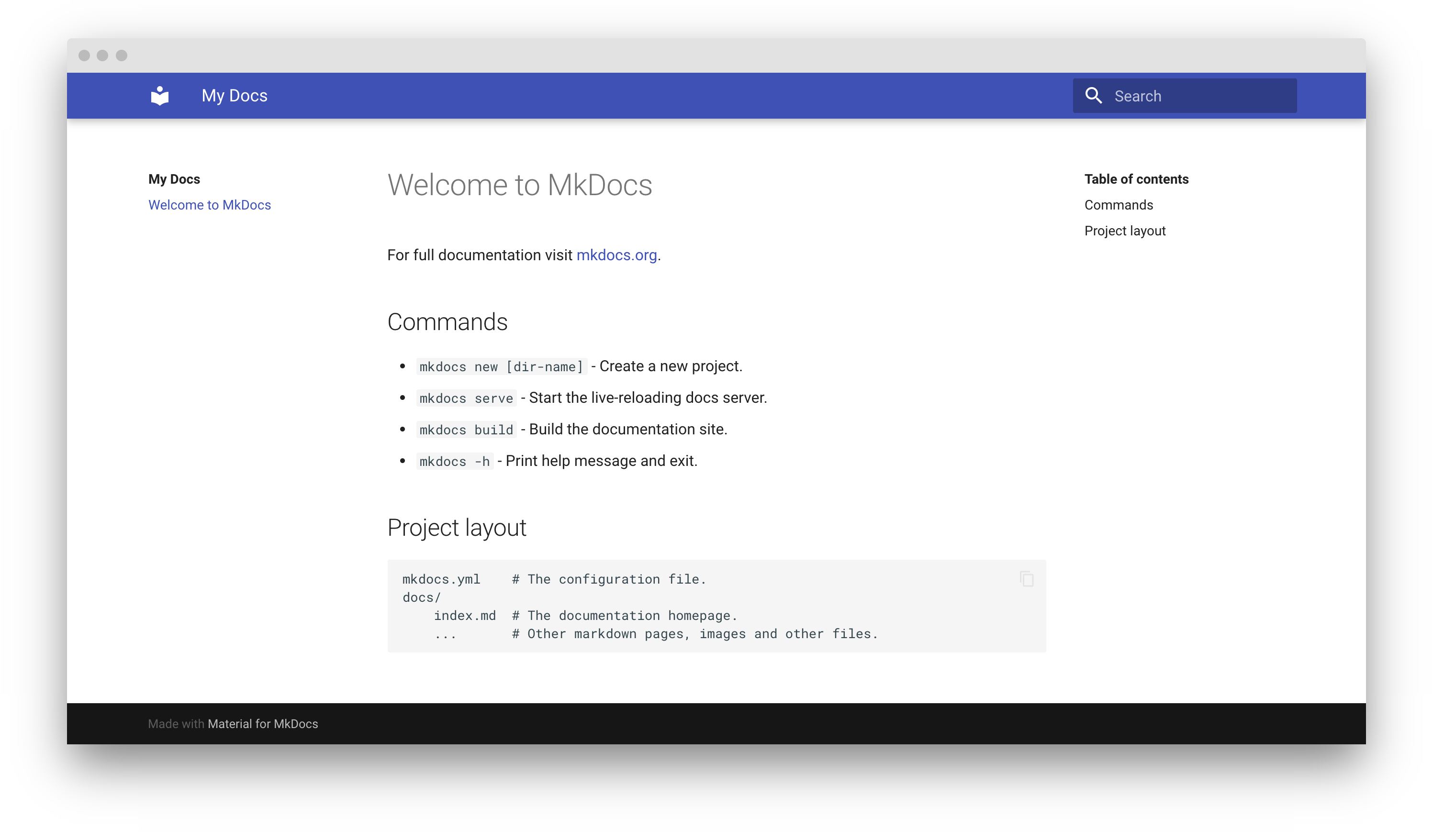4.0 KiB
| template |
|---|
| overrides/main.html |
Creating your site
After you've installed Material for MkDocs, you can bootstrap your project
documentation using the mkdocs executable. Go to the directory where you want
your project to be located and enter:
mkdocs new .
Alternatively, if you're running Material for MkDocs from within Docker, use:
=== "Unix"
```
docker run --rm -it -v ${PWD}:/docs squidfunk/mkdocs-material new .
```
=== "Windows"
```
docker run --rm -it -v "%cd%":/docs squidfunk/mkdocs-material new .
```
This will create the following structure:
.
├─ docs/
│ └─ index.md
└─ mkdocs.yml
Configuration
Minimal configuration
To enable the theme, you can now simply add the following lines to mkdocs.yml.
Note that since there are several installation methods, configuration will
be slightly different:
=== "pip, docker"
``` yaml
theme:
name: material
```
=== "git"
``` yaml
theme:
name: null
custom_dir: mkdocs-material/material
# 404 page
static_templates:
- 404.html
# Necessary for search to work properly
include_search_page: false
search_index_only: true
# Default values, taken from mkdocs_theme.yml
language: en
font:
text: Roboto
code: Roboto Mono
favicon: assets/favicon.png
icon:
logo: logo
```
If you cloned Material for MkDocs from GitHub, you must add all of the themes'
defaults by yourself, since mkdocs_theme.yml is not loaded (as
described in the official documentation).
Advanced configuration
Material for MkDocs comes with a lot of configuration options. The setup section explains in great detail how to configure and customize colors, fonts, icons and much more:
Previewing as you write
MkDocs includes a live preview server, so you can preview your changes as you write your documentation. The server will automatically rebuild the site upon saving. Start it with:
mkdocs serve
If you're running Material for MkDocs from within Docker, use:
=== "Unix"
```
docker run --rm -it -p 8000:8000 -v ${PWD}:/docs squidfunk/mkdocs-material
```
=== "Windows"
```
docker run --rm -it -p 8000:8000 -v "%cd%":/docs squidfunk/mkdocs-material
```
Point your browser to localhost:8000 and you should see:
Building your site
When you're finished editing, you can build a static site from your Markdown files with:
mkdocs build
The contents of this directory make up your project documentation. There's no need for operating a database or server, as it is completely self-contained. The site can be hosted on GitHub Pages, GitLab Pages, a CDN of your choice or your private web space.
